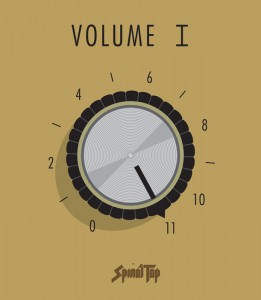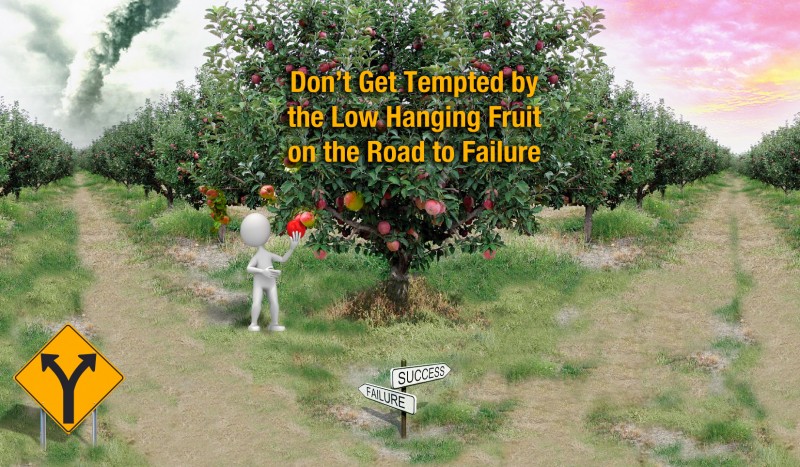NIH think tank on the future of citizen participation in biomedical research came to a closure on Friday night, and I had many hours in the airport and plane to think about all that was discussed. In the next few days, rather than writing a longish piece of my impressions of the meeting, I hope to get to each of the items that I feel I didn’t get a chance to fully explore while in Washington D.C. in a series of small posts.
Low Hanging Fruit
There is a strong temptation in any project to achieve success early (and often). The expression Low Hanging Fruit refers to relatively easy to accomplish tasks. But in the desire to get things done, it is easy to lose track of the overarching strategy — the main purpose of the enterprise. By chasing the Low Hanging Fruit, it is easy to get distracted and end up on the wrong path.
Two Different Roads
 We’ve discussed two visions for the future: more of the same and a radical cultural shift. We visualized the first path as “turning the knob to 11” (aka Spinal Tap). More of the same (but with higher intensity) has many tempting low hanging fruits — facilitate closer relationships between companies that already collect the genotype and phenotype data and NIH researchers (23andMe and others); create bridges between various silos of data; encourage more researchers to share their data; etc.
We’ve discussed two visions for the future: more of the same and a radical cultural shift. We visualized the first path as “turning the knob to 11” (aka Spinal Tap). More of the same (but with higher intensity) has many tempting low hanging fruits — facilitate closer relationships between companies that already collect the genotype and phenotype data and NIH researchers (23andMe and others); create bridges between various silos of data; encourage more researchers to share their data; etc.
But fundamentally, more of the same strategy just supports the current attitudes for sharing data and doesn’t really allow citizen researchers full access to their own data to conduct research. I hope this is not the way NIH decides to go. The promise of Citizen Science is that we all are equal. We might not all have degrees in biology but those who are passionate about doing science have a lot to contribute and not only by way of making their genetic information available.
So I hope NIH takes the harder road — the road of radical cultural shift, where they will discard prejudices as to who and who can not do science. The low hanging fruits on this road are different — give grants only to those researchers that find ways at the start to open their data to the world; create badges for good data citizenship; award micro attribution credits to citizen scientists who are willing to collect data and share it openly; remove barriers to sharing data (e.g. health insurance penalties, work prejudices, social stigma); run an educational campaign that explains the value of doing things differently; create support strictures that lower the bar to citizen science participation, etc.
Cultural shifts are harder to orchestrate, but the results are worth it.
In the next blog post, I will talk about Nudging.



1 comment for “Long-term Strategy versus Fast Success”